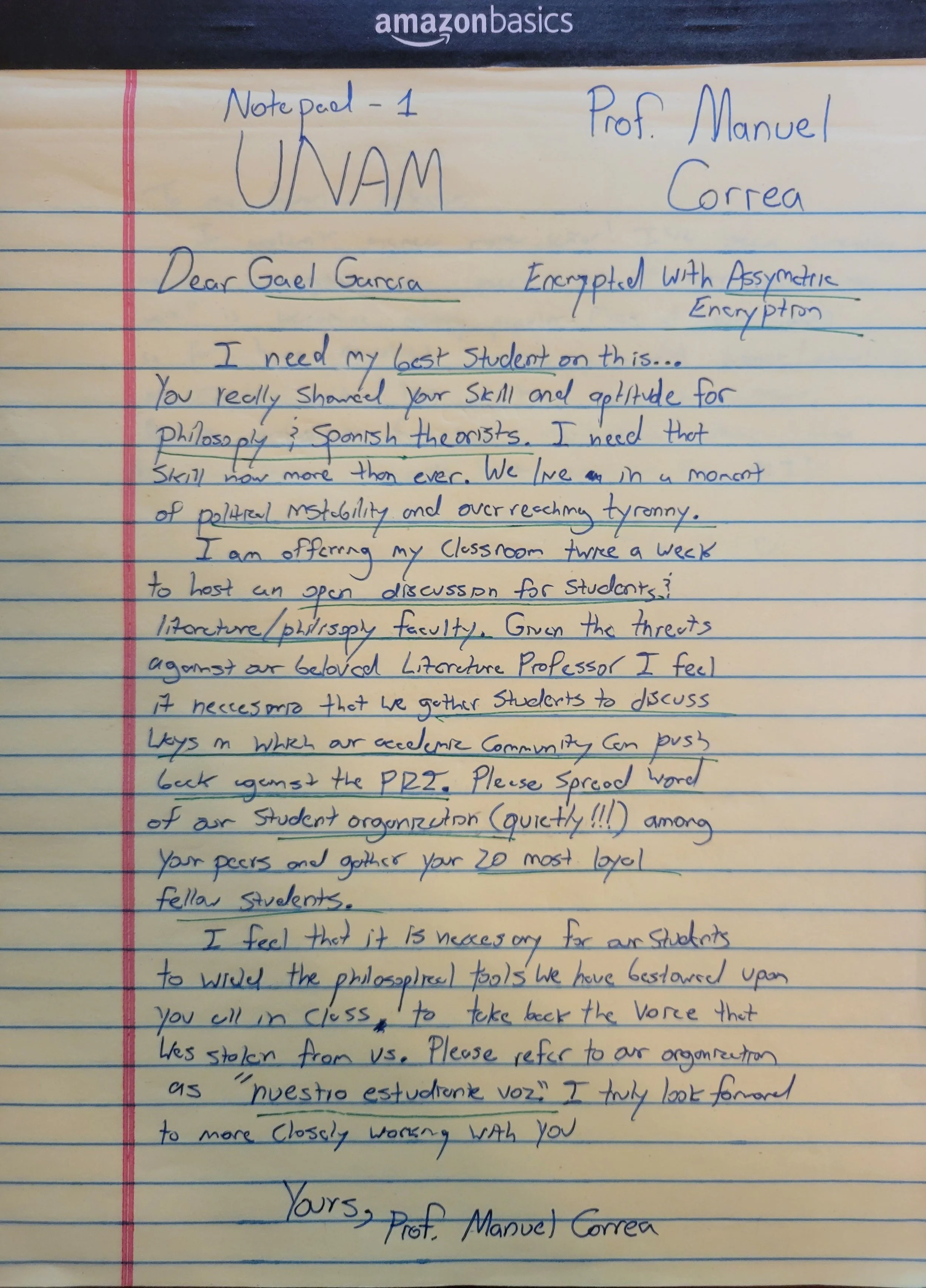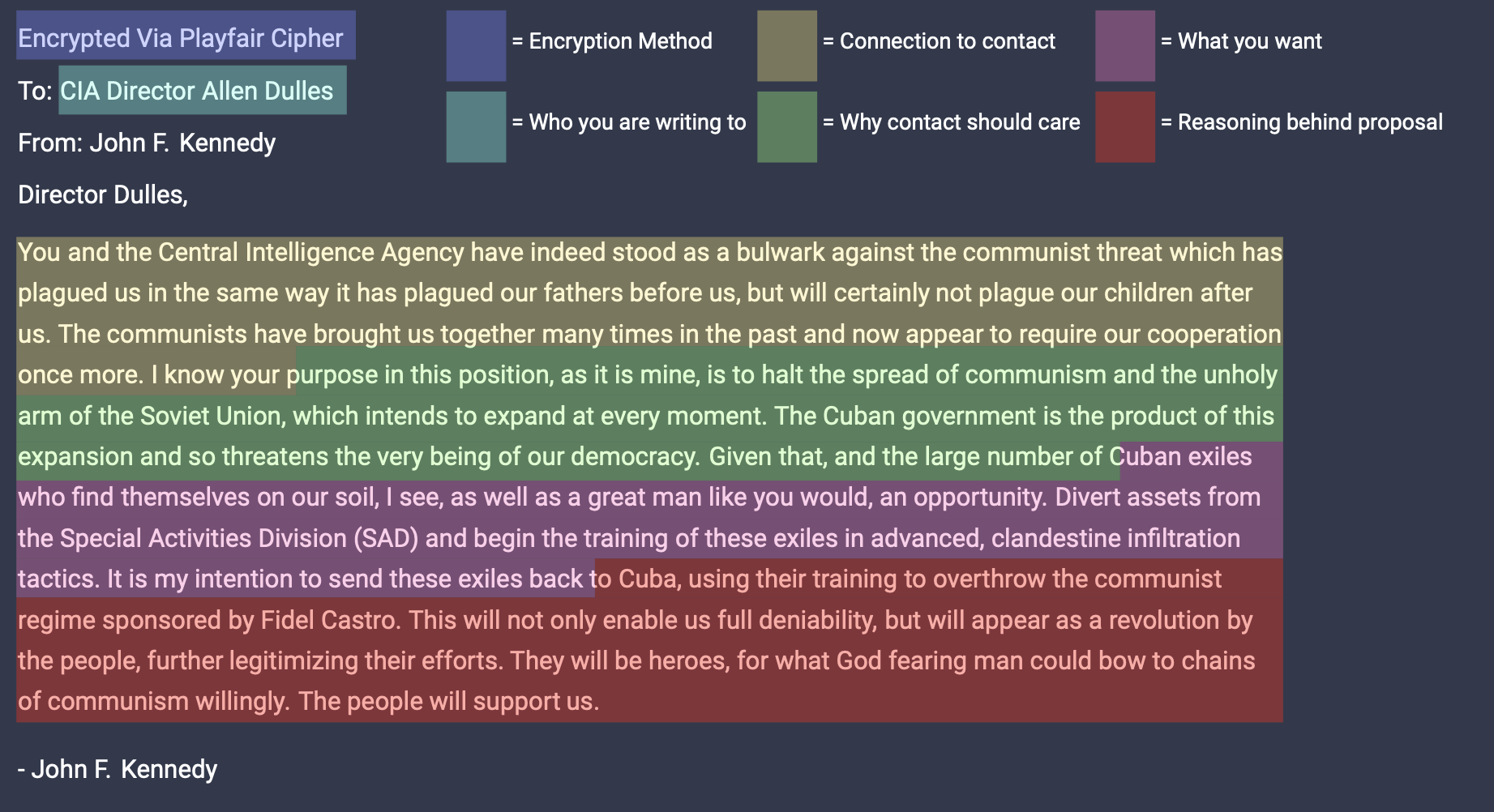
Crisis Arcs & Notes
Crisis notes tie to a greater concept of crisis arcs which is how you will produce power, riches, and/or influence for your character over conference weekend. Crisis notes are simultaneously the most complicated, gratifying, and important pieces of crisis committees and provide the greatest opportunity to be creative and have fun over the weekend.
Crisis notes are a private communication between your character and another character or historical figure that you want to liaise with. The individuals you write to are entirely your creation and can range from your character’s family members, past business associates, important political figures, and more. Crisis notes are a private communication between your character and these character or historical figures that you want to liaise with.
Examples of connections you could write to if your character was Sir Galahad. For example, both Faramond and Josephine are both characters of King Arthur’s court that you could make up to write to!
The individuals you write to are entirely your creation and can range from your character’s family members, past business associates, important political figures, and more. The main goal when writing your crisis notes is to gain resources in order to build up to an overarching objective or “climax” of your character’s arc. This goal should accumulate some sort of new power for your character: creating a new business that dominates the economy, becoming the figurehead of a new political movement that is gaining influence daily, or commanding your own army to take over parts of the world are just a few popular examples. You can also use notes for more devious and creative purposes like spying on fellow committee members or combatting a directive you don’t like. Really, the more creative you can be with your backroom arc and notes – the more likely you are to influence history, impress staffers, and have a super fun conference weekend.
Your Crisis Notes Should Always contain a few key components:
Who you are writing to: Backroom has to know which character you’re interacting with and which part of your arcs to reference back to, dont forget this!
Your Connection to the Character: You need to establish a previously existing relationship with this character to your own character so that you have a foundation to ask for favors off of. This can be a family relation, previous business deal, or a crazy run-in you had with them in the past!
What You Want: This is the meat of your note, this is where you ask backroom for resources from the character you’re writing to, make plans to be executed later, or order people to perform tasks on your behalf. This part is the most important for furthering your arc during committee
Why Your Contact Should Care:
Reasoning Behind Proposal:
An annotated example note written to CIA Director Allen Dulles during the Bay of Pigs crisis. While this is not the end-all-be-all note structure, it’s a great example of a note that incorporates all the aforementioned components.
Helpful Tips For Crisis Arcs & Notes
Build up a rapport with the character you are writing to! Make sure to give backroom reasons as to why this person should help you – whether that be mutual gain, personal history and loyalty, or even blackmail!
Be clear with backroom what your goals are early on so that they can better help you develop your arc! Any good crisis arc is a mutual story told by both you and the backroom staffers so it's always important to work with them to create the best story you possibly can!
Most crisis staffers appreciate creativity over feasibility – so don’t be afraid to allow your imagination to run wild!
Additional questions or concerns can be emailed to crisis@msumun.org



